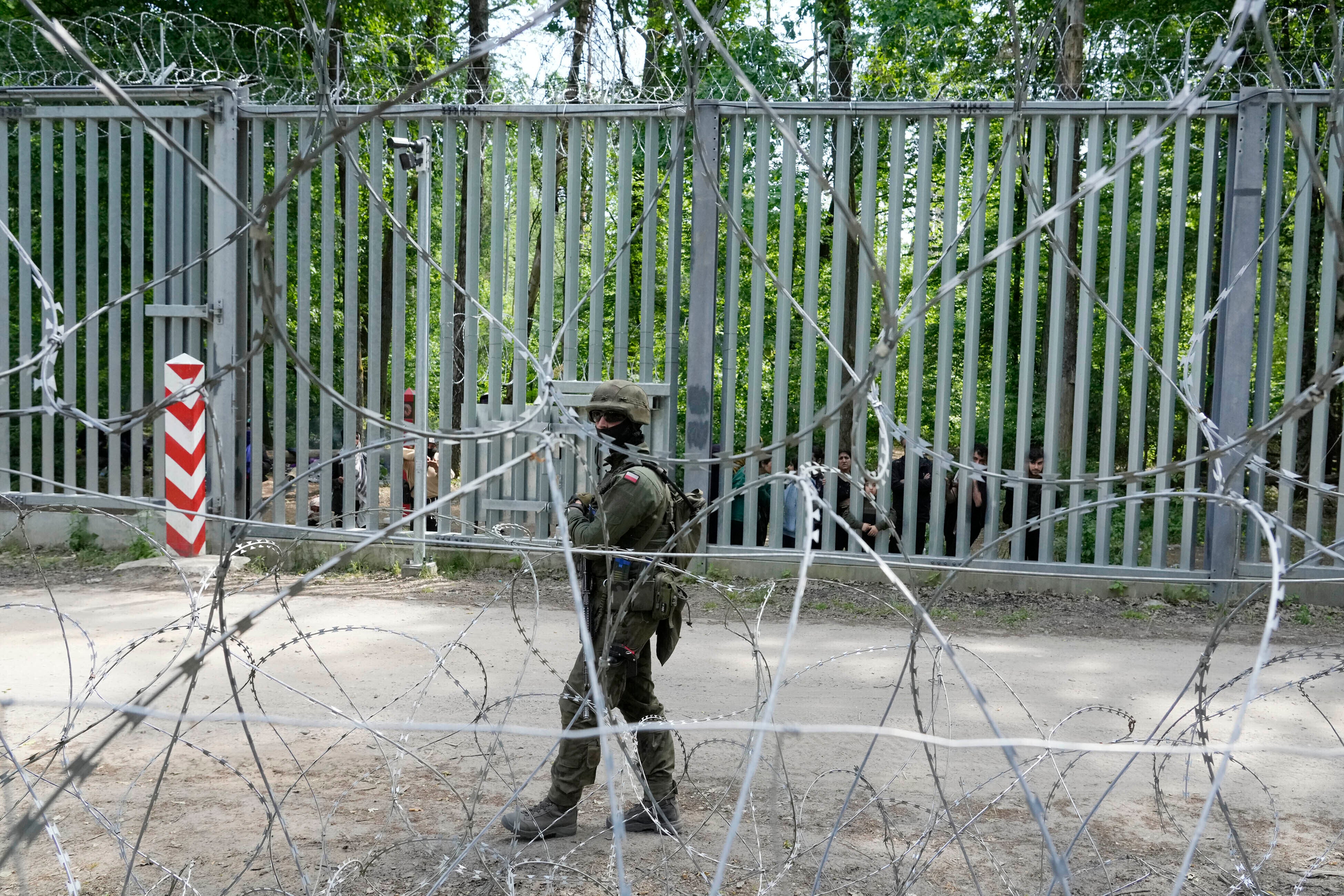Poland reintroduces restrictions on accessing areas along Belarus border due to migration pressure
Poland has reintroduced restrictions on movement along parts of the border with Belarus because of increased migration pressure that has involved violence against Polish security officials

Your support helps us to tell the story
From reproductive rights to climate change to Big Tech, The Independent is on the ground when the story is developing. Whether it's investigating the financials of Elon Musk's pro-Trump PAC or producing our latest documentary, 'The A Word', which shines a light on the American women fighting for reproductive rights, we know how important it is to parse out the facts from the messaging.
At such a critical moment in US history, we need reporters on the ground. Your donation allows us to keep sending journalists to speak to both sides of the story.
The Independent is trusted by Americans across the entire political spectrum. And unlike many other quality news outlets, we choose not to lock Americans out of our reporting and analysis with paywalls. We believe quality journalism should be available to everyone, paid for by those who can afford it.
Your support makes all the difference.Poland on Thursday reintroduced restrictions on movement along parts of the border with Belarus because of increased migration pressure that has involved violence against Polish security officials.
The ban taking effect Thursday will be valid for 90 days and affects 60 kilometers (37 miles) of the land border between NATO member Poland and Belarus, an autocratic state aligned with Russia. The border between Poland and Belarus runs for about 400 kilometers (250 miles).
The government of Prime Minister Donald Tusk says that the purpose of the so-called buffer zone is to ensure the safety of outsiders, as well as the border guards, soldiers and police who work in the area. It also says it seeks to limit the activities of human smugglers who have been facilitating irregular migration at that border.
Residents and those working or studying in the area will be able to access the border areas, but others will require permits.
Refugee rights activists are unhappy with the decision because they say it will prevent them from reaching the area to help migrants who cross the border and need medical or other assistance.
Since 2021 EU authorities have accused authoritarian Belarusian President Alexander Lukashenko of weaponizing migration by luring people to his country to find an easier entry point into the bloc than the more dangerous routes across the Mediterranean Sea.
Poland's previous government reacted to the arrival of migrants by building a steel barrier and imposing a state of emergency in 2021 which had since expired.
The number of attempted illegal border crossings from Belarus into EU-member Poland has again been growing recently and Polish officials say they are seeing aggressive behavior by some migrants on the Belarus side of the border. They have posted online videos showing migrants throwing rocks, logs and even burning wood at the Polish troops from behind the fence. One Polish soldier was fatally stabbed by a migrant in late May and was laid to rest on Wednesday.